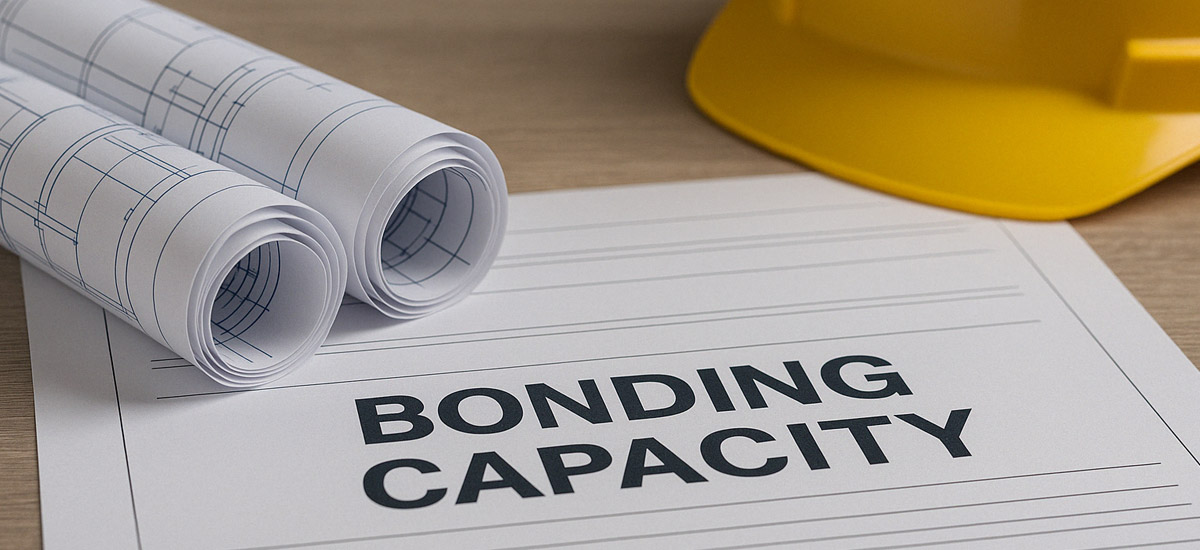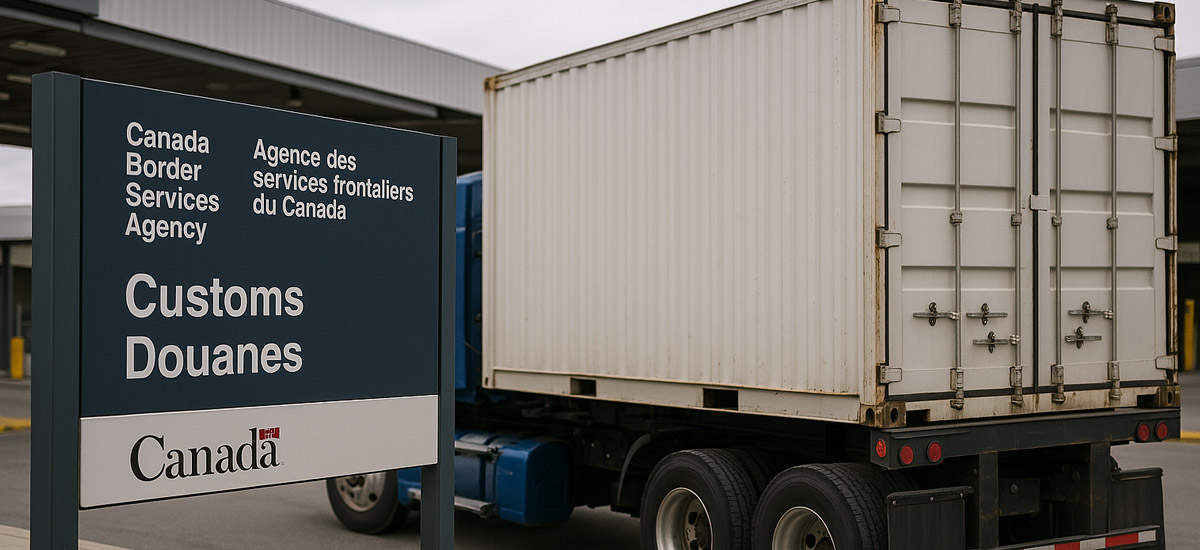Surety bonds play a crucial role in various industries and sectors across Canada. They provide a level of financial security and guarantee that a business or individual will fulfill their contractual obligations or responsibilities by a third party – the bonding company also called a surety underwriter. Being “bondable” refers to the ability of a person or business to qualify for a surety bond. In this article, we will delve into the concept of bondability, explore the 3 C’s of Surety (Character, Capacity, and Capital), highlight the differences in underwriting for small and large bond amounts. We’ll also discuss how surety bonds act as a form of security rather than insurance and the specifics of an indemnity agreement, the backbone of bonding guarantees.
Understanding Bondability and Surety Bonds
Surety bonds act as a form of security that protects the obligee (the party requiring the bond) from financial losses resulting from a breach of contract or non-performance by the principal (the bonded party). It assures the obligee that they will be compensated if the principal fails to fulfill their obligations. Bondability, therefore, is the measure of the principal’s reliability, capability, creditworthiness, and ability to secure a surety bond. This entails convincing a bonding company that you and your business fit with the “Three C’s of Surety”.
The 3 C's of Surety

As an aside, we think it’s important to understand that each surety bond underwriter has unique and varying underwriting philosophies. We work with top global and Canadian specialty bonding underwriters such as:
1. Character
Character refers to the reputation and trustworthiness of the individual or business seeking the surety bond. It involves an evaluation of their track record, integrity, and history of fulfilling contractual obligations. Surety companies assess the principal’s reputation within the industry and their willingness to adhere to ethical standards and contractual agreements.
Demonstrating good character increases the chances of being considered bondable. Past successful projects, a solid credit history, and positive references from previous business partners all contribute to a strong character assessment.
2. Capacity
Capacity focuses on the principal’s ability to perform the duties outlined in the contract. Surety companies analyze the principal’s experience, expertise, workforce, and equipment to ensure they possess the necessary capabilities to complete the project successfully.
For businesses, capacity evaluation may involve assessing their financial stability, management team, and operational efficiency. Demonstrating a track record of handling similar projects and having adequate resources enhances the capacity rating, making the principal more bondable.
3. Capital
Capital refers to the financial strength and resources of the principal. It involves an assessment of their financial standing, liquidity, and overall ability to meet financial obligations. Adequate capital ensures that the principal can handle unexpected challenges and complete the project even in adverse conditions.
A healthy financial statement, sufficient working capital, and manageable debt are key factors that increase bondability. A financially stable principal is more likely to obtain a surety bond, as it signifies their ability to handle potential risks and fulfill their obligations.
Underwriting Differences for Small and Large Bond Requirements
Surety bonds vary in size, depending on the scope, duration, and value of the project or obligation. The amount of the bond directly impacts the underwriting process.
Small Bond Amounts
For small bond amounts, the underwriting process is relatively simple and requires less extensive scrutiny. Surety companies may rely more on basic background checks or credit scores. Since the financial risk associated with smaller bonds is lower, the emphasis is often placed on character and capacity assessments in the form of a brief application. Small bonds only require small premiums to be paid in order to have them issued as well.
Large Bond Amounts
In contrast, large bond amounts necessitate a more comprehensive underwriting process due to the increased financial exposure. The surety company delves deeper into the principal’s financial statements, credit history, and past performance. They may also require additional collateral and financial assurances to mitigate potential risks. We’ll get into the concept of an indemnity agreement later in the article.

Case Study A: License & Permit Bonds for Electrical and Gas Contractors
License and permit bonds are another type of surety bonds that are commonly used in various industries, including the construction sector. These bonds are required by government entities and ensure compliance with local regulations and laws.
Electrical Contractor Bonds and Gas Contractor Bonds are specific examples of license and permit bonds that are typically small penalties, often around $10,000. These bonds are relatively straightforward to obtain with minimal underwriting requirements. They primarily focus on the principal’s character and creditworthiness, rather than an in-depth financial review. You can learn more about how regulatory bodies treat such bonds through Technical Safety BC’s Surety Bond Compliance and Enforcement details.
For such small bond amounts, surety companies may only require basic information about the principal and their business. The process is usually quick, and the bonds can be issued promptly upon approval. Despite their simplicity, these bonds still serve as vital assurances to protect consumers and guarantee that contractors will adhere to the necessary safety and quality standards.
Case Study B: Construction Businesses and Contract Bond Facilities
Construction companies often seek to establish a contract bond facility as this is a common requirement and what project owners will look for in terms of a contractor being “bondable”. A contract bond facility is a pre-approved bonding limit that enables a construction business to bid on various projects.
To obtain a contract bond facility, the construction business must demonstrate a strong corporate history that instills confidence in the surety underwriters. This brings us back to the 3 C’s of Surety: Character, Capacity, and Capital. The construction company’s track record of successfully completing projects, along with a reputation for integrity and ethical business practices, significantly influences the underwriter’s assessment of their character.
The capacity of the construction company to handle multiple projects simultaneously is another crucial factor in establishing a contract bond facility. The underwriters will evaluate the company’s experience, workforce, equipment, and project management capabilities to ensure they can handle the increased work capacity. Regardless of whether a contractor is taking on unbonded or bonded business, the underwriters will still look at work on hand (WIP) as a risk factor when establishing a bond facility or issuing any bonds.
Lastly, but not the least important for sure, the underwriter will examine the financial standing of the construction company or group. A healthy financial statement with sufficient working capital and manageable debt is essential for securing a contract bond facility. This financial stability assures the underwriter that the company can fulfill its obligations on any undertaken projects without running into liquidity issues. Here is where operating lines of credit, material stock, and other unique cases for a business are reviewed.
It should also be noted that with any of the Construction Bonds falling under contract surety, they are not issued on a one-off basis and going through the process of setting up a bond facility cannot be avoided.
Get in touch with our bonding experts to establish a bonding relationship
Surety Bonds as a Reliable Form of Security
It is essential to understand that surety bonds are not insurance or protection for the principal purchasing the bond. While they offer financial security to the obligee, the principal remains fully responsible for fulfilling their contractual obligations. In the event of a claim, the surety company will initially step in to compensate the obligee. However, the principal is ultimately liable for reimbursing the surety company for the amount paid out, making the bonding company whole, hence the importance of financial review. Next we’ll delve into the legality behind what makes that possible (an indemnity agreement) and how to keep a bond facility in good standing.
Indemnity Agreements & Personal Guarantees
An indemnity agreement is a legally binding contract between the principal (the party seeking the bond) and the surety company. It is a critical requirement for obtaining a surety bond. By signing the indemnity agreement, the principal agrees to indemnify the surety company and hold it harmless from any losses, costs, or damages incurred due to the principal’s failure to fulfill their contractual obligations.
The purpose of an indemnity agreement is to provide financial protection to the surety company. In the event of a claim against the bond, the surety company becomes financially responsible. By requiring an indemnity agreement, the surety ensures that although they will be liable to pay any obligee the indicated bond penalty, the principal will then make the bonding company whole . This reinforces the surety’s confidence in the principal’s ability to fulfill their obligations. In this sense you can think of surety bonds as a form of unsecured credit which is why it can be considered risky to underwrite some people and/or businesses.

Bond Facility Maintenance for Lasting Relationships
Contract bonds, such as performance bonds and payment bonds, are commonly required to secure large construction projects as well as contracts in other industries. To maintain a contract bond facility, which allows a contractor to bid on and secure multiple projects without going through the initial extensive underwriting process each time a bond is needed, facility maintenance is required. Before we dive in, please note that even once a bond facility is setup, each project is still considered by underwriters prior to having bonds issues for it. There is a short form application for this called a Bond Requisition. Don’t worry, part of our roles as your bonding broker is to ensure this process if as smooth as possible.
Reporting Requirements
Contractors with a bond facility are typically required to submit regular reports to the surety company. These reports offer insights into the contractor’s ongoing projects, financial status, and overall performance. The frequency of reporting may vary, but it is often requested to be every three or six months.
Accountant Prepared Statements
In addition to regular reporting, contractors with a bond facility must provide accountant-prepared financial statements at each year-end for their business. These financial statements provide a comprehensive overview of the contractor’s financial health and stability, giving the surety company a clear picture of their capacity to take on additional work obligations, whether bonded or not.
Facility maintenance is essential for contractors seeking to expand their business through secured bonding capabilities. By providing regular updates and financial statements, contractors can demonstrate their ability to manage multiple projects and fulfill their obligations on time. The year-end statements can be Notice To Reader, Compilation Engagement, Review Engagement, or Audit reports.
An Overview of the Meaning of "Bondable"
Being bondable in Canada is crucial for businesses and individuals seeking surety bonds. The 3 C’s of Surety (Character, Capacity, and Capital) serve as key factors in determining bondability. A positive evaluation in these areas increases the likelihood of obtaining a surety bond.
Understanding the differences in underwriting for small and large bond amounts, as well as the different types of bonds, is vital for those seeking to secure surety bonds for various projects and responsibilities. Different types of bonds also require varying levels of due diligence from underwriters.
Surety bonds act as a form of security, offering peace of mind to obligees that their contractual obligations will be fulfilled. However, they are not insurance for the principal, who remains fully accountable for the bond’s obligations.
By comprehending the significance of bondability, the 3 C’s of Surety, and the nature of surety bonds, individuals and businesses can navigate the process of obtaining surety bonds with confidence, paving the way for successful ventures and projects throughout Canada.
Get in touch with us and book a consultation below and we’d be happy to guide you through the process and answer any questions you may have.





